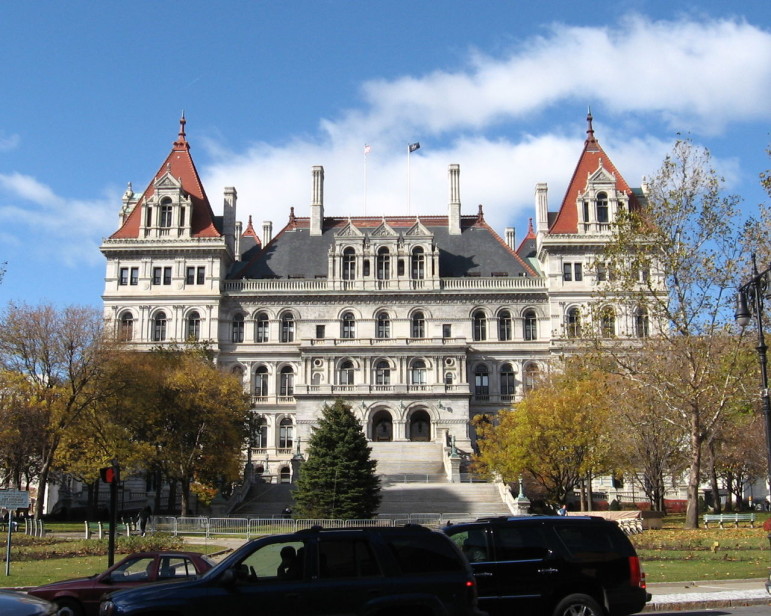
Kurtman518
Rent regulations are on the table for renewal in Albany and tenant advocates are hoping issues like preferential rents and non-rent fees become part of the discussion.
Last week, I stood on the steps of City Hall with a crowd of tenants from across the city to reveal the findings of new research on the impact of non-rent fees, and to call for systemic change. Non-rent fees are charges added by landlords to monthly rent statements, and are used as a way to push residents out of rent-stabilized apartments. These fees—which include fees for appliances like washing machines or air conditioners, legal fees, and other miscellaneous charges—are confusing to tenants and are often unexplained or unjustified. Above all, non-rent fees are unaffordable!
Non-rent fees have thrown my mother into depression. She gets overwhelmed and feels desperation when we receive the monthly rent bills charging us almost $3,000 in late fees and $2,000 in electrical fees, despite the fact that we don’t pay rent late and electricity has been included in the rent since the building was built.
Many landlords have a campaign of harassment against longtime tenants like my mother, who has lived in her apartment for 44 years. Non-rent fees are used as part of this harassment. Fees cause an economic toll that can lead to the displacement of families, and a psychological toll that is devastating for years to come.
My mother is not alone in her experience. The citywide impact of non-rent fees is captured in new research by the Fees are Fraud Coalition, which includes CASA-New Settlement Apartments, of which I am a member. This research expands the findings of a previous report, “The Burden of Fees: How Affordable Housing is Made Unaffordable,” which focused on tenants in buildings owned by Chestnut Holdings in the Bronx.
Our coalition wanted to expand this research because we knew the issue of adding non-rent fees to tenants’ rent bills was not a one-landlord or one-borough issue. We partnered with the Community Development Project (CDP) at the Urban Justice Center and 13 other community-based organizations to conduct additional research, collecting over 562 surveys and 88 rent bills from rent-stabilized tenants across the city. In addition, CASA partnered with CDP to file 48 fee-related overcharge complaints with Housing & Community Renewal’s (HCR) Office of Rent Administration, which were also analyzed as part of our research.
Most of surveyed tenants had been charged at least one kind of non-rent fee. These fees are often not clearly labeled or explained, and tenants, who may not know their rights, are paying fees they could refuse to pay.
Tenants are being overcharged! An analysis of the fee-related HCR overcharge complaints we worked to file show that tenants are having their complaints granted: Of the cases that have been decided, 80 percent of tenants have prevailed. Yet, filing overcharge complaints is not the solution. Many tenants are not even aware they are being overcharged, or don’t know that they have a right to file an overcharge complaint. Plus, the process can take many months or even years, and requires many resources. Rather than filing individual complaints, we need real reform. Even those fees that are currently legal are contributing to the displacement of tenants.
It is unacceptable that tenants throughout the city are being overcharged and paying money that they don’t owe; extra money that they don’t have. We need strong regulations that protect tenants like my mother and others from unnecessary non-rent related fees. We must put an end to harassment and displacement of families. As we chanted from the City Hall steps: “No more fees!”








